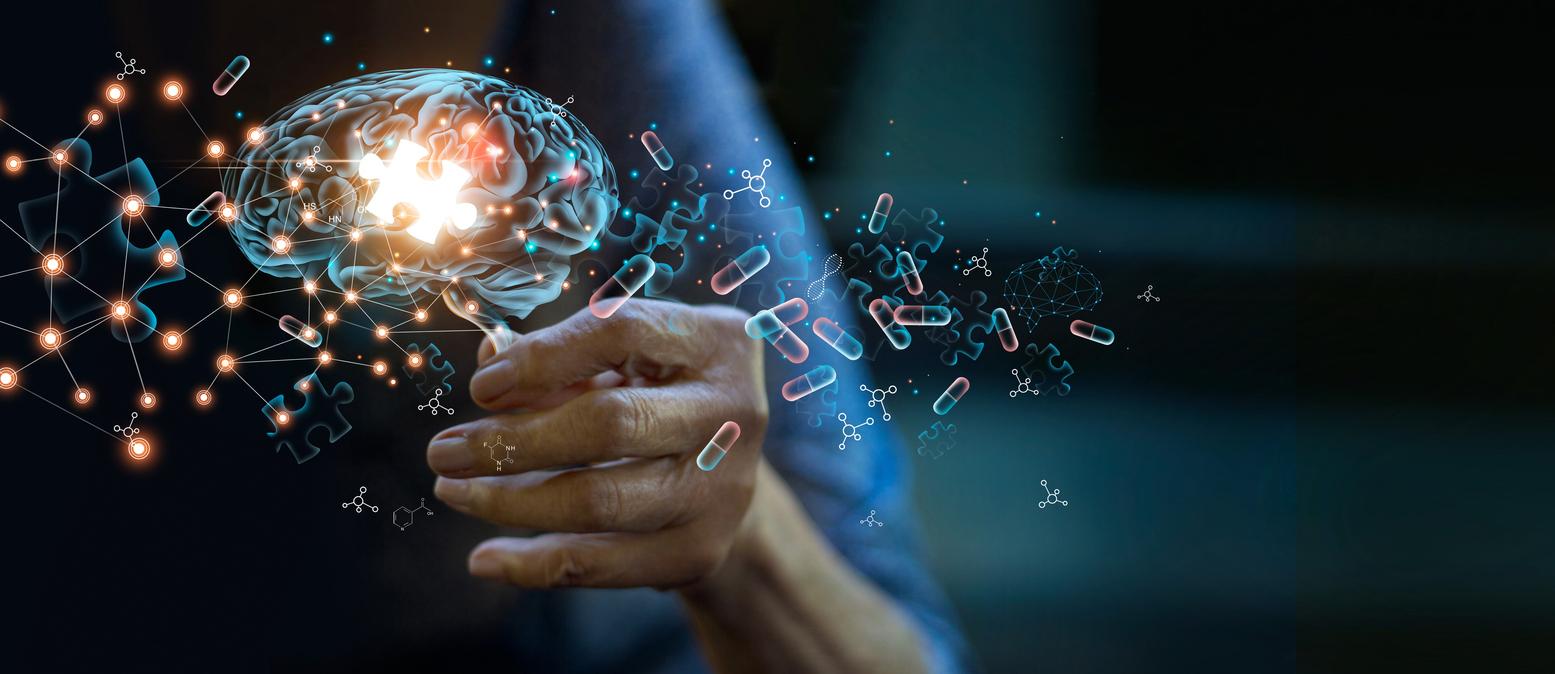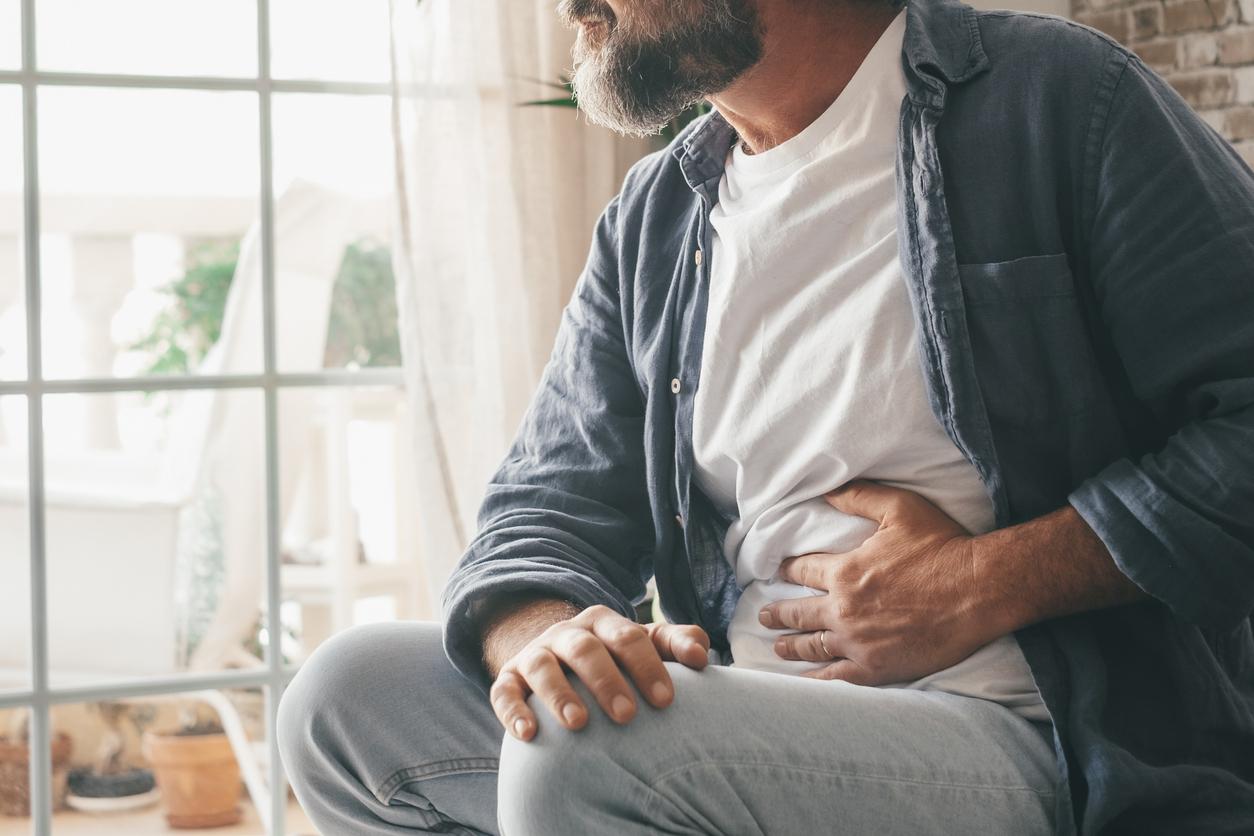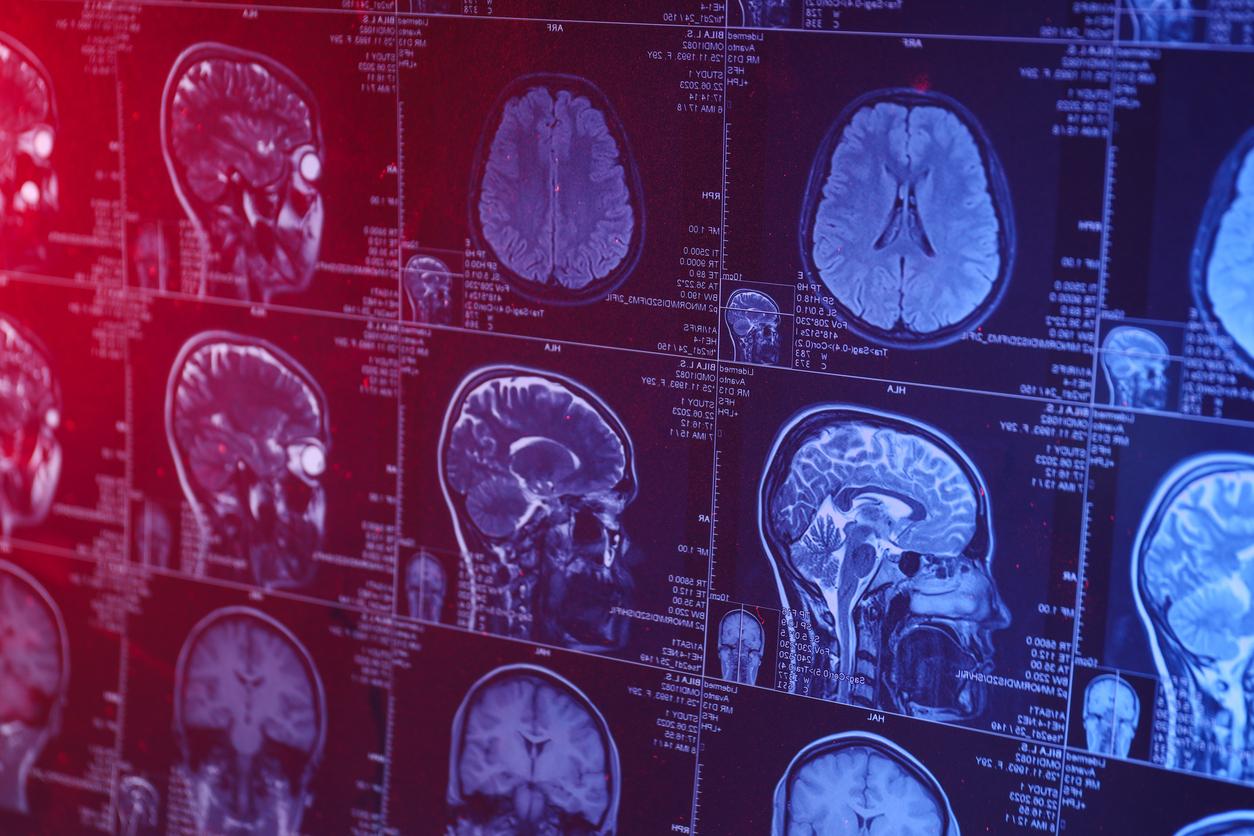Diverticulitis or diverticular disease can develop as a result of inflammation ordiverticulum infection. What is a diverticulum? What are the symptoms of diverticulitis and how to treat this disease? We take stock with Pr. Zerbib, gastroenterologist and hepatologist.
What is diverticulitis?
Diverticulitis is inflammation of the diverticula. The latter are in the vast majority of asymptomatic cases. However, inflammation may make them painful.
what is a diverticulum ?
Before explaining what diverticulitis is, we must first talk about diverticula : “a diverticulum (or “colonic diverticulum”) is a small hernia which are most often found in the wall of the sigmoid colon and the left colon,” explains Prof. Franck Zerbib, gastroenterologist and hepatologist.
What is diverticulitis?
From the Latin “diverticulum” (meaning “detour”), the diverticulum is comparable to a “hollow pouch” that forms in the wall of the colon, outwards. This anatomical anomaly is not uncommon since 50% of French people aged 70 and over are affected: we speak of “uncomplicated diverticulosis”.
Namely: the presence of diverticula (whether there is only one or several dozen!) “is, in the vast majority of cases, asymptomatic ” affirms Pr. Zerbib. They are moreover, most often, discovered in a fortuitous way during a colonoscopy made for a completely different reason.
Also (unlike colon polyps, with which they can be confused), no hereditary factors have been identified regarding the development of diverticula.
We are talking about sigmoid diverticulitis when the diverticula are located at the level of the colon-sigmoid. This is usually the case, however, the rest of the colon can be affected.
What causes diverticulitis?
However, these benign diverticula can become complicated and inflammation/infection can develop due to several factors:
• Immunosuppression (for example linked to a HIV infection),
• A chemotherapy,
• Taking corticosteroid drugsornonsteroidal anti-inflammatory drugs (NSAIDs) which weaken the wall of the intestine and colon.
This is called diverticulitis or “diverticular disease”. It should be noted, however, that only a minority of patients with diverticula will develop diverticulitis.
What are the signs of diverticulitis?
Among the symptoms of acute diverticulitiswe find :
• A sharp pain in the lower abdomen(rather on the left), “comparable to the pain felt in case ofappendicitis “says the specialist,
• A fever (from 38°C). Suffer from a diverticulitis without fever is possible in 1 out of 2 patients.
“If you have these symptoms, make an appointment with your general practitioner, advises Pr. Zerbib. He will prescribe a blood test: if the blood count confirms the inflammation, a CT scan of the abdomen and pelvis will be performed to confirm the diagnosis of diverticulitis.”
Namely: according to the High Authority for Health (HAS) “the diagnosis of diverticulitis, including in patients with a known history of diverticulitis, cannot be confirmed on clinical and biological data alone”. There blood test and the to scan are therefore essential!
How to cure diverticulitis?
There are several ways to treat painful diverticulitis. In some cases, the doctor may prescribe antibiotic treatment. You also have the option of adapting your diet by temporarily eliminating certain foods.
What treatment for diverticulitis ?
Whether it’s a Sigmoid diverticulitis or not a treatment can be set up. Indeedanoint diverticulitis with antibiotic treatment (amoxicillin and clavulanic acid) may be prescribed. “It is not systematic”, nevertheless specifies the specialist. This treatment is particularly recommended in case of complications.
If the diverticulitis is uncomplicated, then it will resolve spontaneously in the majority of cases. However, if the symptoms persist, then the doctor may prescribe antibiotics for a week, to avoid possible complications.

Diverticulitis
“Furthermore, diverticulitis should not be confused with chronic pain or colopathythat’s the whole point of the blood test and the scanner” adds Pr. Zerbib.
What foods are prohibited in case of diverticula?
Surely you have already wondered what to eat for diverticulitis ? Make a home treatment to relieve your diverticulitis can help you.
Even though there is no natural treatment for diverticulitisIadoption of a residue-free diet (which consists of temporarily eliminating dietary fiber of his plate – rice, raw fruits and vegetables, bread…) would be just as effective than antibiotic treatment according to the French National Society of Gastro-Enterology (SNFGE).
In addition, it is advisable to avoid seed or pome foods, such as grapes, figs, currants, strawberries, kiwis or zucchini. The reason is simple: they can become lodged in the bags and cause inflammation.
The consumption ofalcohol for diverticulitis is not recommended, since the latter can favor its triggering.
Diverticulitis: what possible complications?
Diverticulitis can be complicated:
• In abscess (localized infection in contact with the colon),
• In peritonitislocalized or generalized (inflammation and/or infection of the leaflet that surrounds the organs in the belly),
• In fistula (communication of the colon with a neighboring organ: the bladder, the small intestine or the vagina, for example),
• In stenosis (inflammatory narrowing of the diameter of the colon which can result from the infection).
Also, apart from infections, diverticula can also bleed (this is hemorrhage), most often in the form of a sudden release of red blood from the anus – then we are talking about hematochezia.
“These complications are medical emergencies,” says Dr. Zerbib. In the event of complicated diverticulitis, intravenous antibiotic therapy is necessary and surgery (which consists of removal of the part of the colon where the diverticula concerned are located) is unavoidable.

Diverticulitis
There is not really a connection between diverticulitis and cancer. Indeed, a person suffering from diverticulitis has no greater risk of developing cancer.
Can diverticulitis be prevented?
Not really. Thus, according to the High Authority for Health (HAS): ” no diet cannot be recommended for the prevention of recurrences of diverticulitis”. And according to the French National Society of Gastro-Enterology (SNFGE), “no treatment (cures of probiotics, antibiotics, intestinal antiseptics…) demonstrated its ability to prevent diverticulitis and recurrences of diverticulitis”. However, you should know that, as explained by the site du Vidal, in the majority of cases, the first flare-up of diverticulitis don’t reoffend.
Thanks to Pr. Franck Zerbib, gastroenterologist and hepatologist, member of the French National Society of Gastroenterology (SNFGE).
Sources:
High Authority for Health (HAS)
French National Society of Gastroenterology (SNFGE)
Read also
My daughter has an infected diverticulum
Ulcerative colitis: 9 out of 10 patients morally exhausted
Chronic digestive disorders: Crohn’s disease?


















